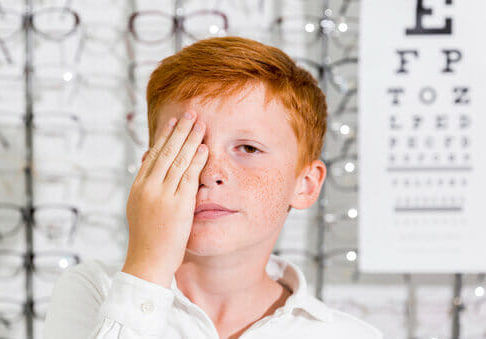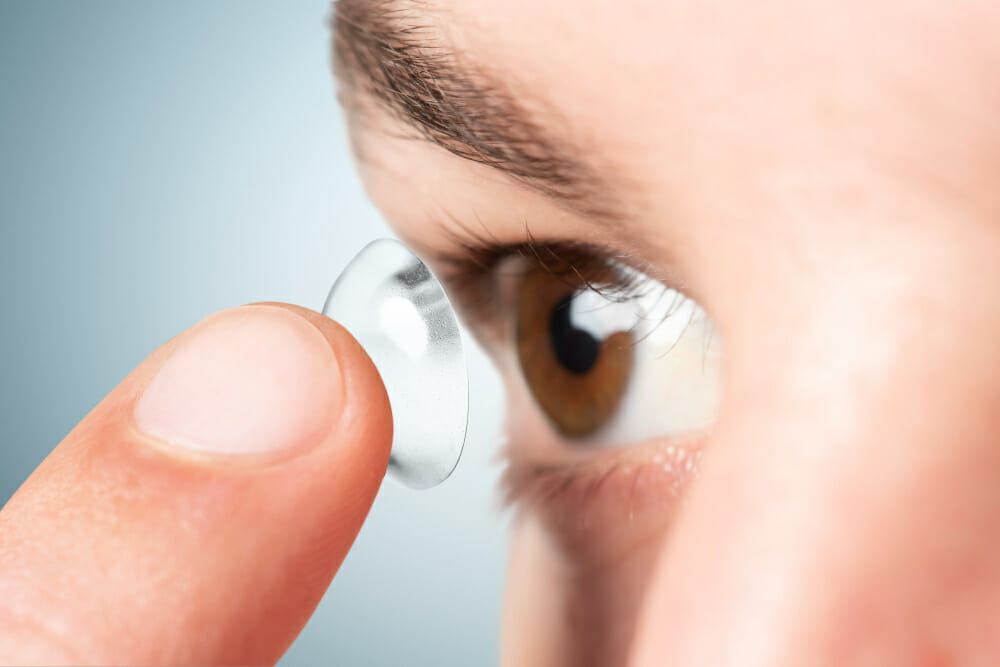The Tear Film and Ocular Surface Society launched a definitive guideline to the management of dry eye disease called The Dry Eye Workshop 2 (TFOS DEWS2). In this study it notes the recommendation to use tea tree oil when the clinician has found presence of a Demodex infestation that is causing blepharitis.
While the above may sound like a strong recommendation to begin using tea tree oil, we will outline below how there are many different causes for blepharitis, which is why diagnosis of the cause of your symptoms should precede any attempt to treat them.
Understanding Blepharitis: Symptoms and Impact on Vision
Blepharitis is a common eye condition that affects the eyelid margins. It is characterized by inflammation and redness of the eyelids, as well as the formation of crusty debris on the eyelashes. Some common symptoms of blepharitis include:
- Irritated, itchy, and swollen eyelids
- Crusty debris on the eyelashes
- Red, inflamed eyelids
- Burning or stinging sensation in the eyes
- Light sensitivity
- Blurred vision
- Dry, flaky skin around the eyes
In severe cases, blepharitis can cause eyelashes to fall out and create a chronic cycle of inflammation and infection. This can lead to scarring and permanent damage to the eyelid margins. To avoid these complications, it is important to seek prompt treatment from an eye doctor if you suspect you have blepharitis.
Causes of Blepharitis
Blepharitis is a common eye condition that affects the eyelid margins, causing inflammation and redness. There are several different causes of blepharitis, including:
- Bacterial infections: Staphylococcus bacteria is one of the most common causes of blepharitis.
- Sebum or oil gland dysfunction: Overactive oil glands in the eyelid margins can cause clogging, leading to blepharitis.
- Skin conditions: Blepharitis can be a complication of conditions like rosacea, dandruff, or seborrheic dermatitis.
- Demodex mites: These tiny mites are naturally present on the skin and are usually harmless, but in some cases, they can cause blepharitis.
- Dry eyes: Chronic dry eyes can cause the eyelid margins to become irritated, leading to blepharitis.
- Irritants: Exposure to environmental irritants, such as pollutants or chemicals, can cause blepharitis.
- Aging: As we age, our oil glands may become less active, leading to a higher risk of blepharitis.
It's important to see our eye doctor if you are experiencing any symptoms of blepharitis. They can diagnose the underlying cause and help you determine the best course of treatment.
Take our dry eye assessment to see if your symptoms indicate that you are suffering from treatable dry eye disease /dry-eye/dry-eye-quiz/
The link between Demodex Mites and Blepharitis
Demodex is a type of mite that can live on the skin and is known to cause a condition called blepharitis. Blepharitis is a condition characterized by inflammation of the eyelashes and the skin around the eyes. There are two species of Demodex mites that are commonly found on the skin: Demodex folliculorum and Demodex brevis. These mites are usually harmless, but in some cases, an overpopulation of these mites can lead to skin irritation and blepharitis.
The following are some common symptoms of Demodex blepharitis:
- Itching and redness of the skin around the eyes
- Papules, pustules, and nodules around the eyes
- Scaly patches on the skin around the eyes
- Burning or stinging sensation around the eyes
- Inflammation of the eyelashes
- Loss of eyelashes
- Redness and pimple-like bumps around the eyes
Not everyone who has Demodex mites will experience symptoms. However, if you are experiencing skin irritation or other symptoms around the eyes, it is best to consult a dermatologist for proper diagnosis and treatment. Blepharitis can be treated with a combination of lid hygiene, antibiotics, and other topical medications, but it is important to seek medical advice to ensure proper treatment.
What Is Tea Tree Oil and Why Is It Used for Blepharitis?
Tea tree oil is a popular natural oil that has been used for centuries for its medicinal properties. It has antimicrobial and anti-inflammatory properties, making it an ideal ingredient for treating a variety of skin and eye conditions, including blepharitis, styes, chalazions, dry eye disease, and even ocular rosacea. Tea tree oil has also been found to be effective in killing a type of mite that lives on eyelashes, called demodex mites, which can cause irritation and dryness.
Why is it important to see our optometrist before starting to use tea tree oil?
We caution against using pure tea tree oil near the eyes, as it can cause serious irritation and even vision damage. If you're considering using tea tree oil for your blepharitis, it's important to seek advice from our eye doctor first. We can provide you with the best advice for your individual case and help you determine the most safe and effective course of action for your specific needs.
While there is some evidence to suggest that tea tree oil may have antibacterial properties that can help treat blepharitis, the scientific evidence is limited. In fact, a recent study found that tea tree oil was not as effective as conventional treatments for blepharitis. That's why it's important to work with our knowledgeable eye doctor to determine the best course of action for your specific needs. To schedule an appointment, please call 111-222-3333.
It's also important to keep in mind that the severity of blepharitis can vary greatly from person to person. Some people may experience mild symptoms that can be easily managed with simple lifestyle changes and over-the-counter products, while others may require more aggressive treatment to manage their symptoms.
Additionally, it's important to remember that blepharitis is a chronic condition that requires ongoing management. Even if you do find relief from your symptoms with tea tree oil or other treatments, it's important to continue working with our eye doctor to monitor your condition and make any necessary adjustments to your treatment plan.
The Risks of Using Tea Tree Oil Near the Eyes: Consult with Our Eye Doctor for Safe and Effective Eye Care
If you're considering using tea tree oil for any eye-related concerns, it's important to seek advice from our eye doctor first. Using pure tea tree oil near the eyes can cause serious irritation and even vision damage. Our eye doctor can provide you with the best advice for your individual case and help you determine the most safe and effective course of action for your specific needs. To schedule an appointment with our eye doctor, please call 111-222-3333.
Patients searching for advanced dry eye treatment and medical eye care visit our clinic from all over STATE, and we are proud to be a leading provider of medical eye care and dry eye services for patients from CITY, SECONDARY1, SECONDARY2, and SECONDARY3.



